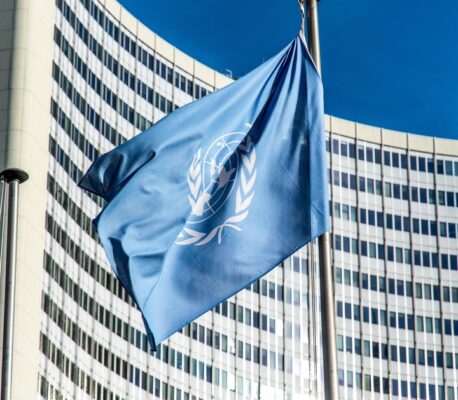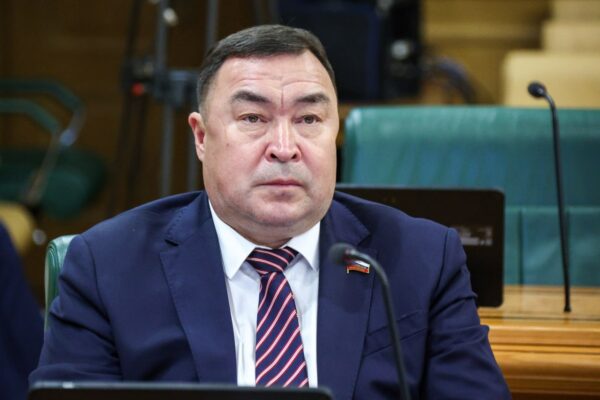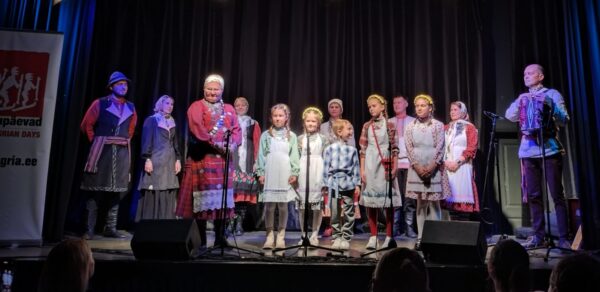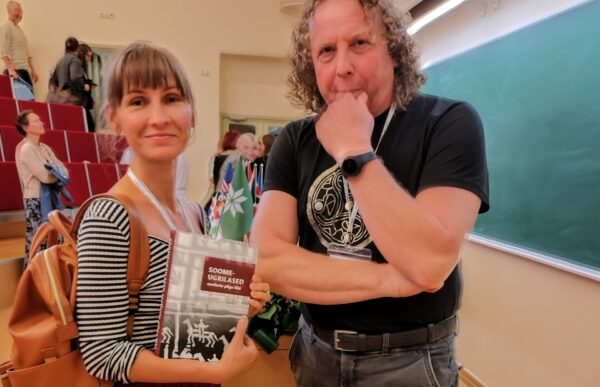Fenno-Ugria representative participated in UN Permanent Forum on Indigenous Issues in New York
Fenno-Ugria’s vice-chairman Sven-Erik Soosaar reports on his participation as a member of the Estonian delegation in the 24th UNPFII session in New York.
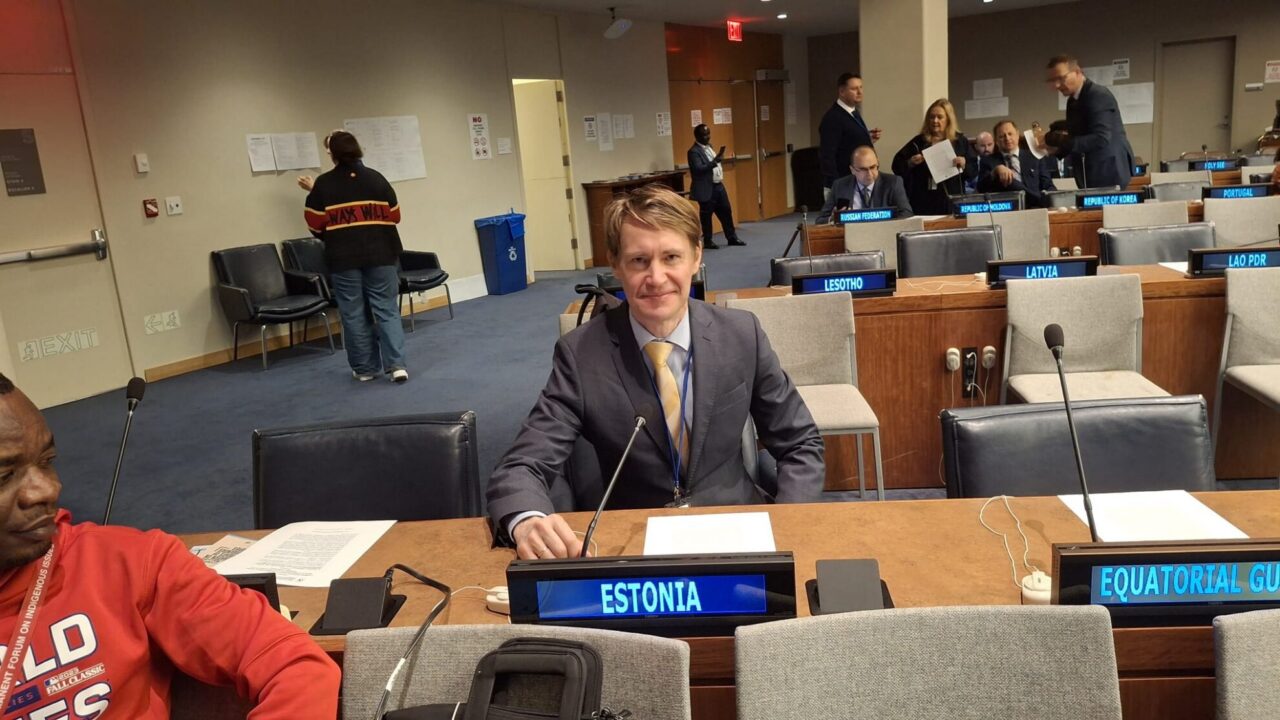
From 21 April to 2 May, the session of the UN Permanent Forum on Indigenous Issues (UNPFII) was held in New York, where Fenno-Ugria was represented by Sven-Erik Soosaar, a member of the Estonian delegation.
This was the 24th edition of the annual UN session on the situation of indigenous peoples, held since 2002. The Forum is composed of 16 independent experts, eight of whom are members nominated by countries (currently Burundi, Denmark (Greenland), Iran, USA, China, Ukraine, Namibia and Chile) and eight by indigenous peoples’ organisations (currently indigenous peoples from Chad, Canada, Australia, Colombia, Myanmar, Iran, USA and Russia). A number of the members nominated by countries are also members of indigenous peoples. For example, Keith Harper, the Chair of the previous session of the Forum, is a Cherokee and the first indigenous person to become a US Ambassador (2014-2017 to the UN Human Rights Council).
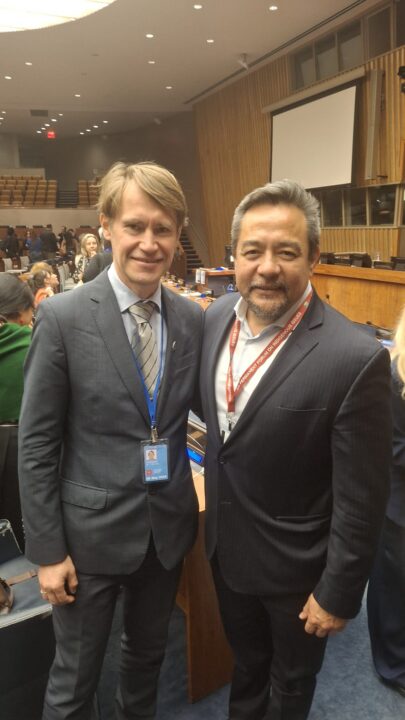
Aluki Kotierk, an Inuit from Nunavut, Canada, was elected chair of this year’s session. The three-year term of the next session will start in early 2026, and it is now known that the Finno-Ugric representative is Valts Ernštreits, a Livonian nominated by Latvia.
The 6th edition of the report on the “State of the World’s Indigenous Peoples” was also published during the Forum, this time focusing on the climate crisis and its impact on indigenous peoples. The report calls on countries and international organisations to ensure equitable support for indigenous peoples in managing the climate crisis.
The 24th session
The session on 25 April included a discussion on the Declaration on the Rights of Indigenous Peoples and sustainable development. Under this item spoke also Rein Tammsaar, Estonia’s representative to the UN, noting that despite progress in the world, there are setbacks in many areas, such as Russia marginalising Finno-Ugric peoples through torture and threats, and declaring indigenous peoples’ organisations foreign agents when they criticise state authority. The Crimean Tatars in particular are suffering under the occupation, their men are being forcibly mobilised for war, as are those of other indigenous peoples, stressed Tammsaar. He noted that the protection of indigenous languages is also important for Estonia, for example, in cooperation with Namibia, it has organised hackathons and created digital platforms to preserve and develop indigenous languages.
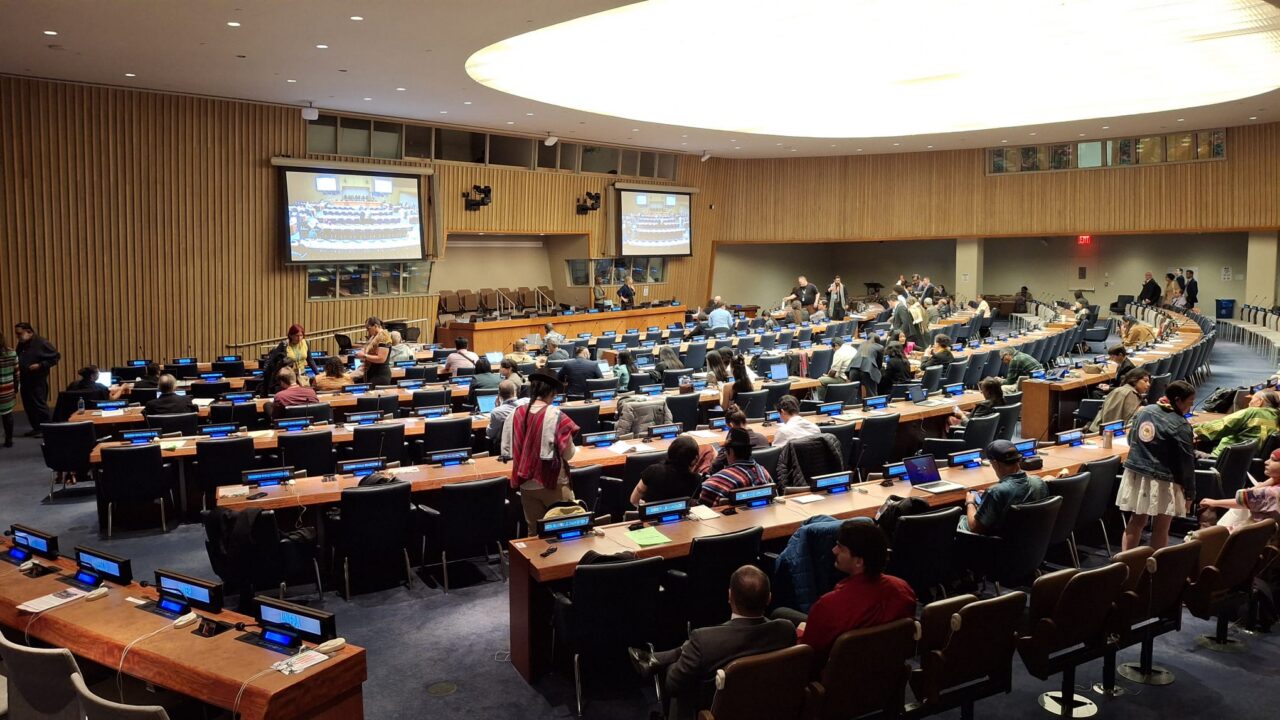
Among the Finno-Ugric peoples, the Saami have always been well represented at the UN Forum on Indigenous Issues, and have been represented on several occasions.
Russian representation
Russian indigenous peoples’ organisations are always well represented at the sessions of the UN Indigenous Peoples’ Forum, including the Khanty, Mansi and Nenets. Russia does not consider the larger peoples to be indigenous, and therefore the Udmurts, the Mari and the Komi have no place in the Russian delegation to the Forum.
Speeches by representatives of Russian organisations at UN events on indigenous peoples are numerous and coordinated, and mostly promote Russia’s soft-pedalling, highlighting Russia’s “progress” in protecting indigenous peoples, while remaining completely silent on the disregard for the law, the decline of indigenous languages and the serious problems of the war against Ukraine. This time, however, there was also sharp criticism from Russia’s official representative of the UN, Western countries and Russian emigrant organisations. Similar criticisms were also heard from representatives of Russian-controlled organisations. The representative of the organisation Yamal Potomkam even questioned the competence of the members of the forum, calling them dilettantes. This statement was sharply rebutted by the chairman of the Forum and several other Forum members.
A representative of the Association of Indigenous Peoples of the North of Krasnoyarsk Krai criticised the obstacles faced by representatives of indigenous peoples from Estonia and “some other countries” (with particular reference to Ukraine) in the selection of members of the Steering Committee of the Decade of Indigenous Languages from our region, because the decision has to be by consensus, but Russia wants to control two of the three vacant seats. This does not go down well with the candidates from Estonia and Ukraine, who would accept a distribution of one seat for indigenous peoples from each country. Russia is also concerned that a number of organisations of indigenous emigrants have been granted observer status at the UN and are nominating candidates for elected assemblies. In Russia’s view, they should not have the right to represent their own peoples because they do not live in Russia (and are therefore not under their control). Thanks to the activities of the representatives of the emigrant organisations, other participants in the forum will also get a fairer picture of the real situation of the indigenous peoples of Russia.
Estonian position
Estonian organisations currently do not have observer status at the UN, so we can only make the voice of Finno-Ugric peoples heard through an official Estonian representative. Estonia’s policy has been not to react to Russia’s unfounded accusations in order not to draw undue attention to them.
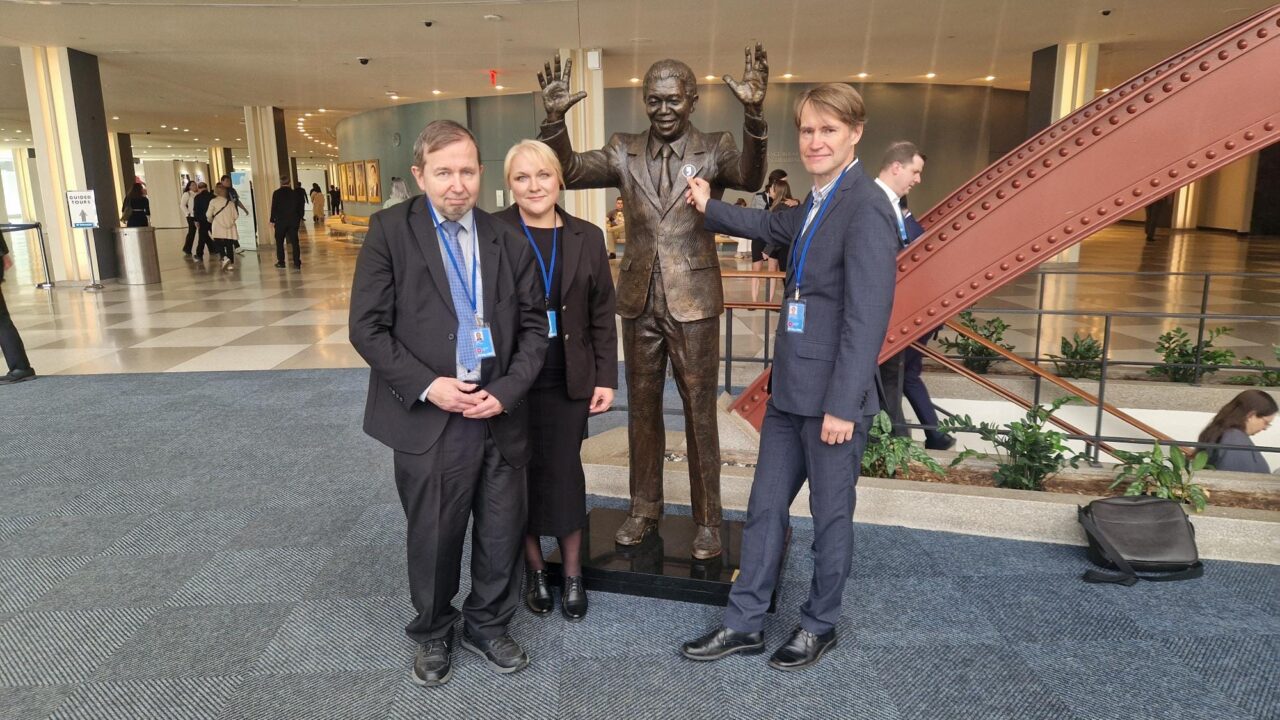
The final declaration of this session called on Russia, among other things, to take into account the linguistic rights of indigenous peoples in the draft federal law on the languages of Russian peoples. The current version of the draft wants to declare Russian the mother tongue of all Russians. In addition, Ecuador, Nicaragua, Peru and Iraq were called on to improve the situation and legislation of their indigenous peoples.
FURTHER INFORMATION:
Sven-Erik Soosaar
sven-erik.soosaar@fennougria.ee
